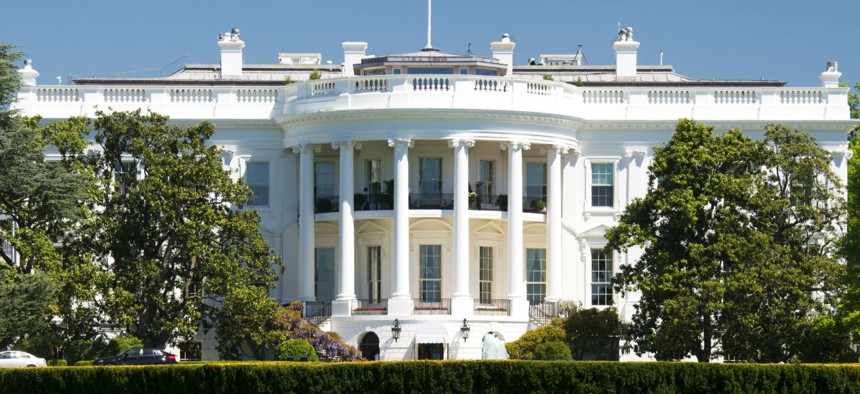Watchdog Doesn't Know How White House Determines Who Gets Ethics Waivers
Waivers allow staff to weigh in on issues they worked on for former employers and clients.
The White House is not providing any transparency into who qualifies for an exemption from an ethics pledge President Trump has required of all his appointees, according to the executive branch’s top ethics watchdog.
The Trump administration has listed which employees in the Executive Office of the President have received the ethics waiver, but has not provided any explanation to the Office of Government Ethics as to why those individuals received the exemption. Trump’s order prohibits his appointees, upon leaving government, from working for any foreign government or political party that would require registering under the Foreign Agents Registration Act. Additionally, appointees entering government must pledge to refrain from participating in any matters substantially related to their former employer or clients, “including regulations and contracts,” for two years from the date of their appointment.
Asked if the White House presented any information to the ethics office on how it decides who gets a waiver, acting Director and General Counsel David Apol said, “The White House has not provided OGE with such criteria.” The documents the White House has posted on its website also do not “provide the criteria used to make those determinations,” Apol added.
Trump named Apol as OGE’s acting director after Walter Shaub resigned four years into his five-year term, saying it had become clear from working with the Trump administration that “we need improvements to the existing ethics program.”
Trump's January ethics order was met with a lukewarm reception from experts in the field, who said it was a positive step but laden with loopholes. One section of the order allows the president to grant to “any person a waiver of any restrictions contained in the pledge signed by such person.” OGE has released waivers granted to employees scattered at agencies throughout the executive branch in June, but those contained detailed explanations of why the exemptions were in the public interest.
The executive order’s language specifically states the exemption is effective upon the signing of the waiver, which OGE said should preclude them from applying retroactively. Apol told Sen. Claire McCaskill, D-Mo., who made the inquiry to OGE, the agency did not know if the White House has applied any of the waivers retroactively because the administration has not kept it in the loop and the documents posted publicly were undated and unsigned.
OGE has issued a data call to all agencies requesting waivers to Trump’s executive order. Apol said his staff as followed up with “those agencies whose responses required further information or raised compliance concerns, including the White House.”
The White House did not respond to a request for comment.








